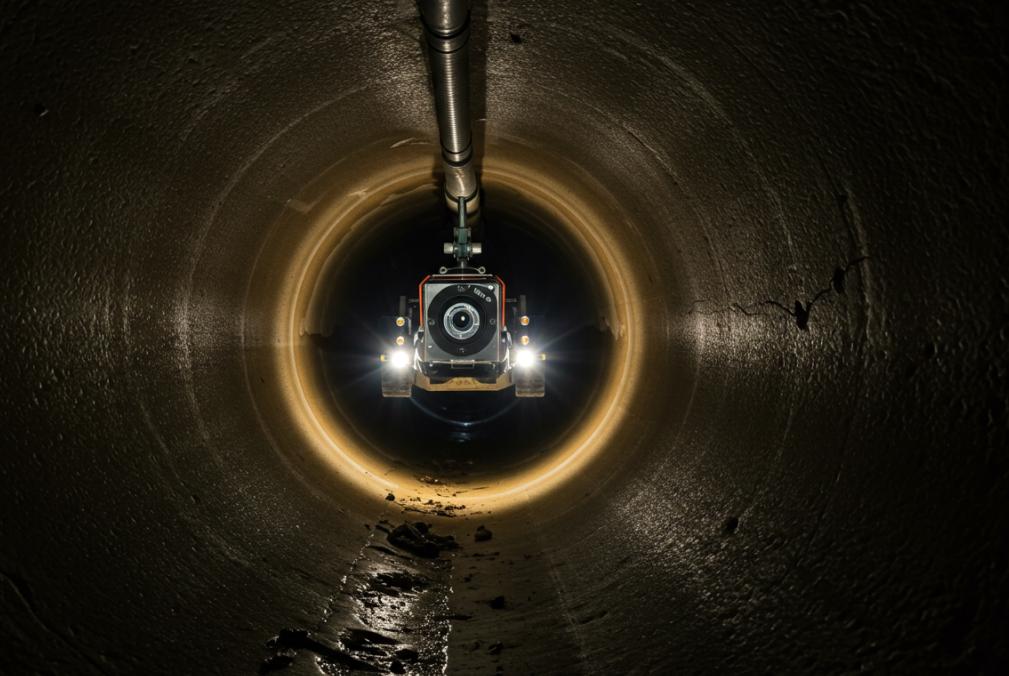
Sewer Inspection Tips to Prevent Clogs
Sewer line clogs can lead to costly repairs and frustrating plumbing troubles. Regular inspection can help you avoid these headaches and protect your home from potential damage. By following a few simple inspection tips, you can save thousands in emergency repairs and maintain a smooth-flowing plumbing system.
The Importance of Sewer Inspections
Regular checks serve as proactive measures to identify and nip potential issues in the bud. A little maintenance can save you from major headaches. Let’s delve into the guidelines for maintaining a healthy sewer line.
When to Schedule Inspections
Ideally, you should plan for inspections at least once a year. However, if your home is older or has undergone any renovations, more frequent checks may be necessary. Keep an eye on your sewer line’s condition, especially after heavy rain or during seasonal changes, these are times when issues may arise.
Signs Indicating an Inspection Is Needed
Look out for warning signs that suggest your sewer line is in trouble. Slow drains throughout your home can indicate blockages upstream. If you notice unusual gurgling sounds coming from your pipes, it may signal air being trapped. Additionally, persistent foul odors from your drains should not be ignored, as they indicate underlying issues. Taking prompt action allows for timely intervention and cost-effective repairs.
Essential Inspection Techniques
Diving into the inspection process requires understanding various techniques that can effectively reveal the condition of your sewer lines. Proper methods can provide valuable insights, helping you maintain a healthy plumbing system. Here are some essential techniques.
Visual Inspection
A visual inspection is the simplest yet often overlooked method. Periodically checking for visible damage around your sewer line’s access points can save time and effort later. Look for signs such as cracks, leaks, or wet patches on the ground. Additionally, residents should monitor their yards for unusual lush patches of grass or puddling, as these often indicate hidden leaks.
Using Smart Technology
Technology has transformed conventional plumbing inspections. Today, advanced equipment can easily spot problems that are not visible to the naked eye. Camera inspections involve inserting a small camera into the sewer line to provide real-time footage, allowing you to see the interior condition of the pipes. These high-definition images can reveal root intrusions, buildup, or corrosion, guiding you toward the right solutions.

The Benefits of Regular Maintenance
Staying on top of your sewer line’s condition comes with numerous advantages. Regular maintenance reduces the risk of sudden emergencies that can lead to costly repairs. By addressing minor repairs early, you can also prolong the lifespan of your plumbing system. A well-maintained sewer line operates efficiently, providing peace of mind and safeguarding health by avoiding hazardous backups.
Investing in maintenance checks can ultimately be more cost-effective than dealing with a major sewer line crisis. Regular inspections help catch issues early, potentially saving thousands in repairs. Compare the cost of routine inspections against emergency services; the former is a fraction of the latter. It’s a small price to pay to secure your home’s plumbing integrity.
| Maintenance Task | Cost Estimate |
|---|---|
| Annual Inspection | $100 – $250 |
| Camera Inspection | $150 – $500 |
| Sewer Cleaning | $200 – $400 |
| Rooter Service | $300 – $700 |
| Major Pipe Repair | $2,000 – $5,000 |
DIY Inspection Tips
While professional help is invaluable, there are DIY measures homeowners can take to maintain their sewer lines. Routine tasks like flushing hot water down the drains can dissolve minor buildups, while using enzyme cleaners regularly can help keep pipes clean. These simple actions not only maintain cleanliness but also enhance flow and efficiency.
The significance of proper waste disposal cannot be overstated. Practicing good disposal habits prevents clogging in the first place. Avoid flushing non-degradable items, which can lead to significant blockages. Educating family members about what can and cannot go down the drain is crucial for maintaining a healthy sewer line.
Engaging Professionals for Certain Tasks
Although many maintenance tasks can be performed by homeowners, some situations call for professional expertise. Instances such as severe clogs that refuse to budge or major leaks require specialized tools and extensive knowledge. Enlisting the help of a licensed plumber ensures that repairs are conducted correctly, preventing further issues down the line.
Selecting the right plumbing service is equally important. Research local plumbers, and look for reviews and recommendations. Ask about their experience and services they provide. A reliable plumber like Conan’s Drain Cleaning LLC will understand your needs and offer tailored solutions that fit your budget.
